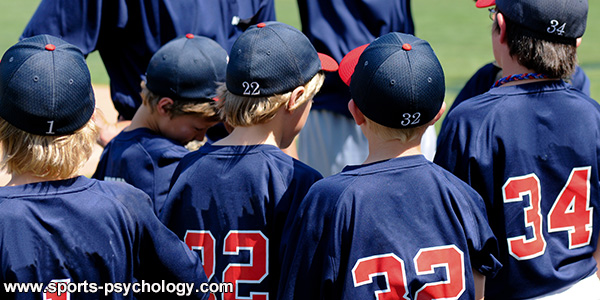Protecting Sports Kids From Bullies
Summary: Bullying, harassment, and abuse in youth sports can cause lasting harm to children’s confidence, focus, and overall well-being. Parents play a vital role in prevention by ensuring coaches and staff undergo background checks, teaching kids what behavior is appropriate, and encouraging them to speak up if something feels wrong.
It’s hard to read the stories about members of the USA Gymnastics Team being harassed and abused by the team’s doctor.
And it’s easy to worry about such dangers.
Kids who are bullied, abused or harassed as sports kids can suffer throughout their lives.
In the least, they’ll have a hard time concentrating on their sport, and their confidence will suffer.
Parents can help their sports kids avoid such problems, says Chris Trieste, a veteran educator with extensive experience in coaching, teaching, and educational leadership. He has served as a teacher, athletic director and administrator.
“My background in the public schools,” he says. “This can happen. You can take steps to try to avoid these kind of things.”
- Be sure coaches and others involved with kids undergo background checks, he says.
- Train sports kids about what’s appropriate and not appropriate from coaches and other adults—and tell them how to take action.
- Parents need to be on the lookout for coaches and other adults who abuse, harass or bully kids. They should not avoid talking to such coaches out of fear that their kids will lose playing time or hurt their sports careers, he says.
What’s Most Important is that Sports Kids are Safe
And if your kid’s team is the only team in town, you still need to speak up. You might offer to start a new team and coach it.
“Parents see that their child’s entire career could be disrupted if they speak up,” he says.
But that’s a bad reason to be silent.
Consider the long-term consequences of letting kids be bullied, harassed or abused.
“There have to be checks and balances. It can’t be a dictatorship,” Trieste says.
After talking to a coach, parents may need to talk to the school or league administrators about any concerns they might have.
4 Tips to Protect Young Athletes from Abuse and Harassment
1. Ensure Coaches Pass Background Checks
Parents should confirm that all coaches, trainers, and volunteers working with youth athletes undergo strict background checks. This step helps create a safer sports environment and reduces the risk of abuse.
2. Teach Kids About Boundaries in Sports
Educate young athletes on what’s appropriate and inappropriate behavior from adults. When kids understand their boundaries, they are more likely to recognize and report harassment or bullying.
3. Encourage Open Communication with Your Child
Create a safe space where kids can talk about their experiences in sports. Open dialogue helps children feel supported and makes it easier for parents to address issues early.
4. Speak Up Against Harassment in Youth Sports
If a coach or adult mistreats a child, parents must address the situation directly. Don’t let fear of losing playing time prevent you from protecting your child’s well-being.
You can learn more about this topic by listening to our interview with Trieste here:
Related Sports Psychology Articles:
- Athletes Who Appear Like They Play Too Safe Video
- What’s the Best Program for My Young Athlete?
- How Athletes Can Balance Sports and Life
Boost Your Self-Confidence With Expert Mental Game Coaching!
Expert mental game coach Dr. Patrick Cohn can help you overcome your mental game issues in sports with personal coaching. We do mental training with athletes of all levels and ages–about 12 years and up. And mental training is not just for elite or professional athletes.
You can work with us in Orlando, Florida or via Skype, FaceTime, or telephone from anywhere in the world. Call us toll free at 888-742-7225 or contact us for more information about the different coaching programs we offer
If you are interested in mental coaching, try our free 15-minute introductory session. Contact Peak Performance Sports today with your name, sport, and what mental game challenges you are having.
You can learn more about our mental coaching programs for athletes here.
FAQ: Protecting Kids in Sports
Q: Why is it important to address bullying or harassment in youth sports?
A: Because abuse and harassment can harm kids’ confidence, focus, and emotional health, with effects lasting well beyond sports.
Q: How can parents help protect their young athletes?
A: By making sure coaches and staff pass background checks, educating kids about boundaries, and encouraging open communication if something feels inappropriate.
Q: What should parents do if they suspect a coach is mistreating their child?
A: Speak directly with the coach, and if the issue persists, report concerns to the school, league administrators, or higher authorities.
Q: Won’t speaking up hurt my child’s sports career?
A: While some parents worry about playing time, protecting a child’s safety and well-being must always come first. Long-term harm from abuse is far more damaging than short-term disruptions in sports.
Q: What if the team is the only one available in the area?
A: Parents may need to consider alternatives, such as forming a new team or volunteering to coach, to ensure a safe environment for their child.
Dr. Patrick Cohn is an expert mental performance coach who has helped athletes for over 30 years enhance their performance. Dr. Cohn earned a master’s degree in sports psychology from CSUF and a Ph.D. from the University of Virginia, specializing in Applied Sports Psychology.

